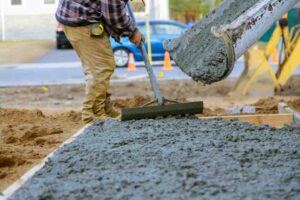10 Tips On How You Can Check Cement Quality For Solid Construction Work
Even though you’ve given the project to a reliable concrete company Sydney, it is necessary to check the cement quality they want to bring to your site. The quality of…
NTT Com Asia Constructions Limited

Even though you’ve given the project to a reliable concrete company Sydney, it is necessary to check the cement quality they want to bring to your site. The quality of…

Concrete is a construction material that comprises cement, gravel, sand and water. It is an essential tool in construction work. In carrying out successful construction work, concrete is very significant.…

This IDG Connect survey was commissioned by NTT Communications in order to better understand the needs of CIOs and IT decision makers wishing to further leverage the benefits of IT Managed Services. This survey with over…